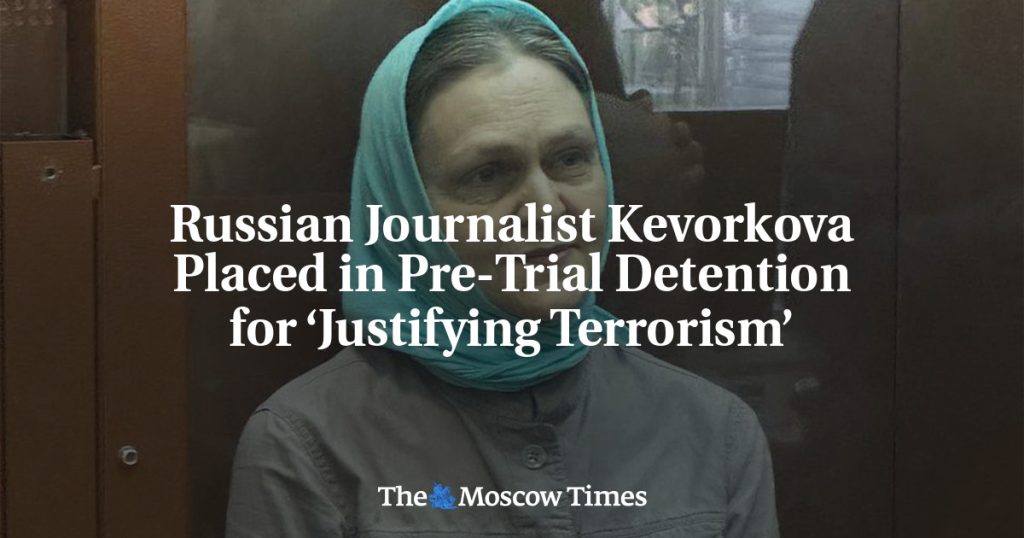A Moscow court has placed journalist Nadezhda Kevorkova in pre-trial detention for two months on charges of “justifying terrorism” over posts she made on social media. Kevorkova, a Russian war correspondent, author, and filmmaker known for her work on the Middle East and Russia’s North Caucasus, currently runs a Telegram channel mainly focused on news about the Israel-Hamas war. She was arrested after her Moscow apartment was searched by police, and the Basmanny District Court ruled to keep her in detention until July 6, rejecting her request for house arrest. The investigators claim she posted content on her Telegram channel that appeared to justify the Taliban’s activities, although Kevorkova denies the allegations while cooperating with the investigation.
Despite the charges against her, Kevorkova’s son, independent video journalist Vasily Polonsky, and her ex-husband, journalist Maxim Shevchenko, assert her innocence. Shevchenko acknowledged that the country is currently in a state of war, leading to stricter laws, and emphasized the need for leniency and understanding towards Kevorkova. He hopes that the seriousness of the charges will be realized by his ex-wife and is optimistic that those responsible for bringing the charges will show compassion towards her. Shevchenko stressed that Kevorkova is not a villain and should be treated fairly during this difficult time.
Kevorkova’s case has caused concern among journalists and human rights activists in Russia, with many worried about the implications of her arrest on freedom of speech and journalism in the country. The detention of Kevorkova, a respected journalist with a long history of reporting on conflict zones, has raised questions about the limits of free expression in Russia and the potential consequences for those who voice dissenting opinions. While Kevorkova denies any wrongdoing, her arrest has highlighted the challenges faced by journalists who cover sensitive topics and engage in discussions on controversial issues.
The charges of justifying terrorism against Kevorkova have sparked debate about the boundaries of permissible speech in Russia and the extent to which journalists can express their views without facing legal repercussions. Critics argue that the charges have been brought against Kevorkova in an attempt to silence her reporting on sensitive topics and to intimidate other journalists from speaking out on similar issues. The case has drawn attention to the importance of protecting press freedom and ensuring that journalists can report on important issues without fear of retaliation or censorship.
Kevorkova’s detention has also highlighted the need for a fair and transparent legal system in Russia that upholds the rights of individuals facing criminal charges. As the investigation into her case continues, questions remain about the evidence against her and whether she will receive a fair trial. Human rights organizations have called for Kevorkova’s release and for her to be given the opportunity to defend herself against the charges in a court of law. The outcome of her case will be closely watched by journalists, activists, and legal experts in Russia and around the world as a test of the country’s commitment to freedom of speech and press freedom.
In a climate where political dissent is increasingly criminalized in Russia, Kevorkova’s case serves as a reminder of the dangers faced by journalists who report on sensitive issues and challenge the official narrative. As the trial proceeds, it will shed light on the state of media freedom and democracy in Russia and the challenges faced by those who seek to hold the government accountable. The outcome of Kevorkova’s case will have far-reaching implications for journalists and activists in Russia and beyond, underscoring the importance of protecting freedom of speech and the press as fundamental rights in a democratic society.


